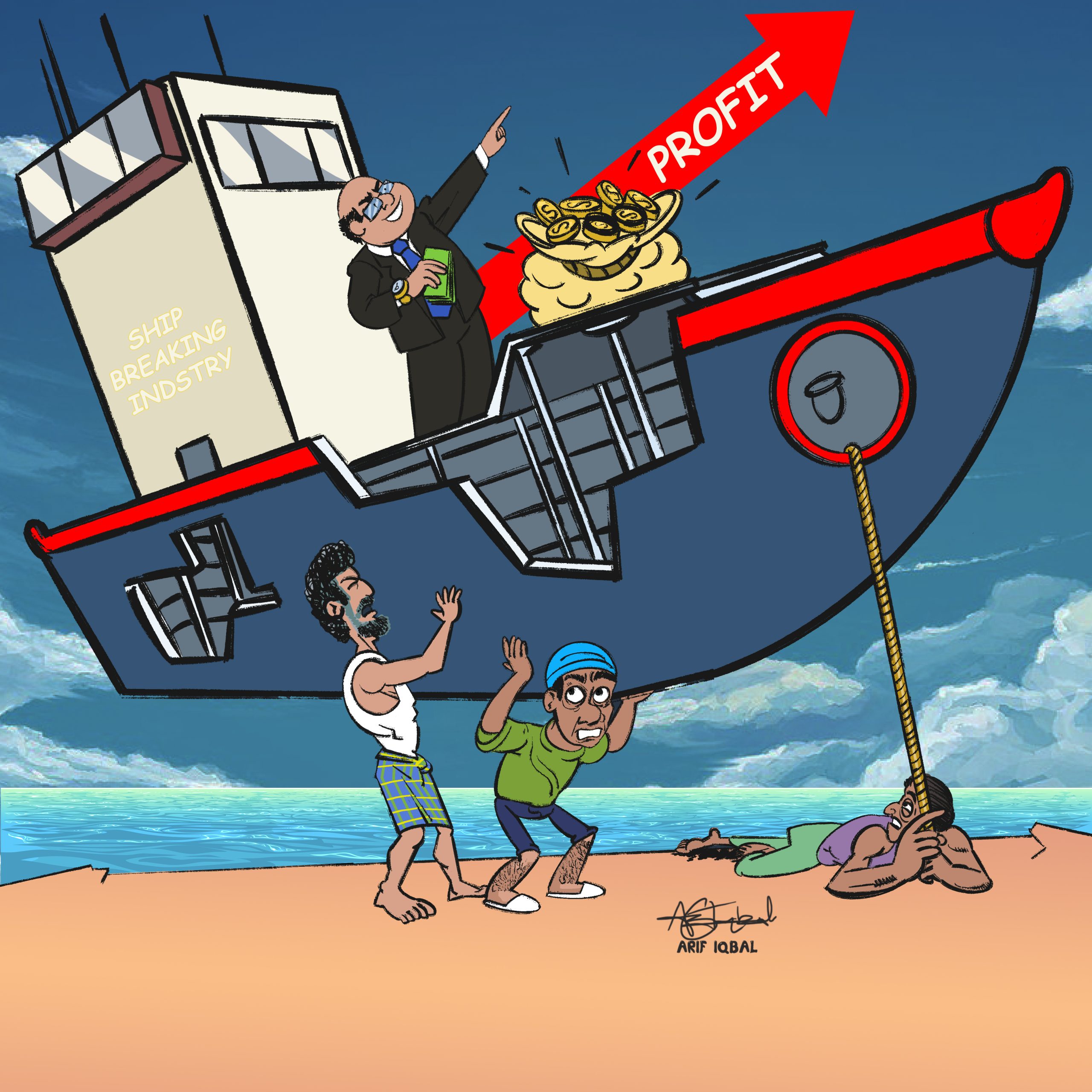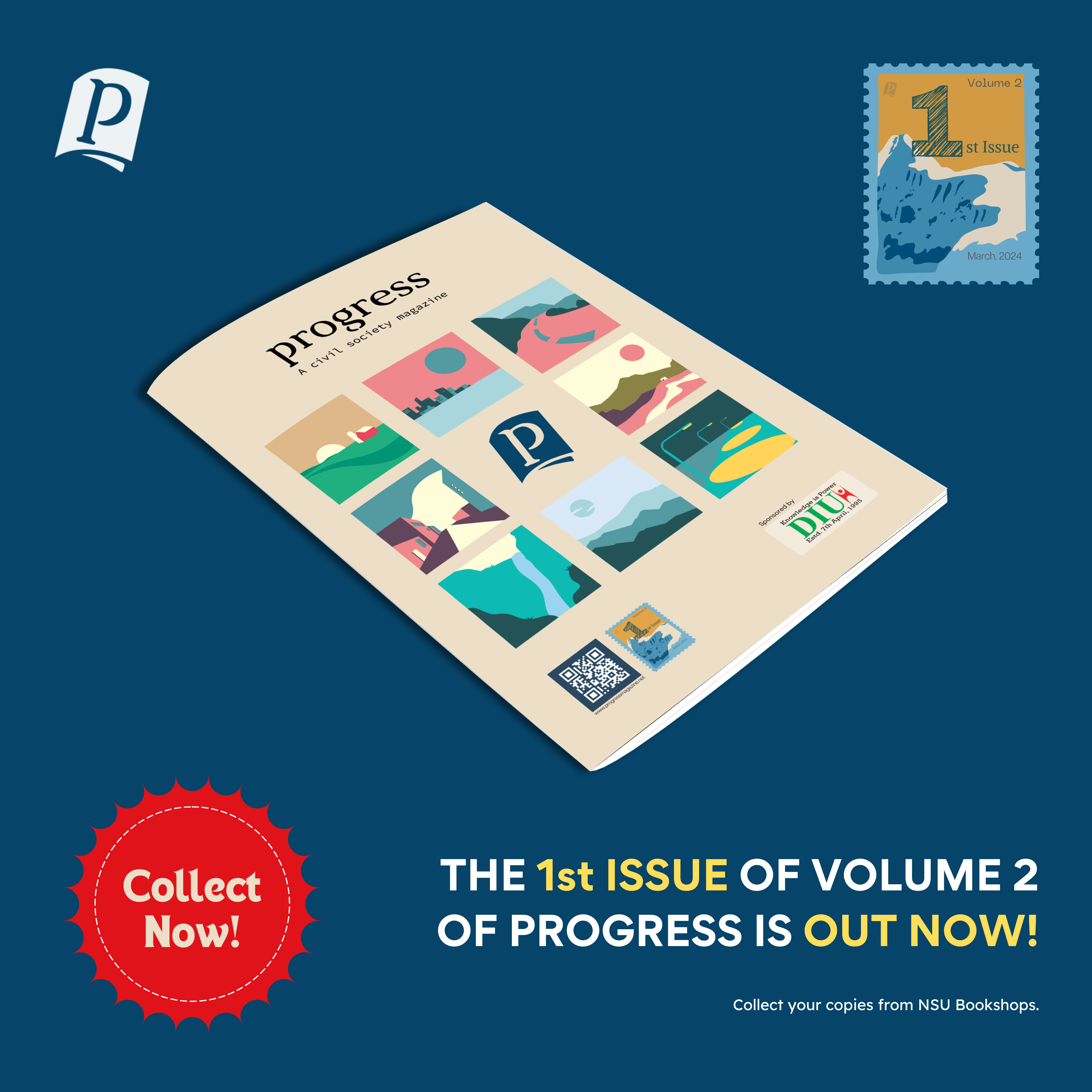Introduction: Ship recycling is the predominant method of decommissioning a vessel at the end of its life cycle. A vessel is considered to be at the end of its life cycle when its operating cost, maintenance cost, and insurance cost get higher than the income it generates. It happens after about 25 to 30 years of the ship’s service life. Ship recycling can be done in various methods including dry dock, landing, and beach recycling methods. Beaching is the cheapest method as it does not require any high-cost infrastructure or machinery. But it requires a beach with gentle slope and a good difference in height between high tide and low tide. The coastal belt of Chittagong in Bangladesh has one of the highest tidal differences in the world allowing ship recycling by beaching method to be feasible in Bangladesh. Despite being a key source of scrap steel, the ship recycling industry in Bangladesh is plagued by unsustainable practices, coastal pollution and worker deaths.
History of ship recycling in Bangladesh:
The growth of ship recycling in Bangladesh as a profitable business is usually attributed to two events. In 1965, a Greek ship named M.V Alpin was stranded in the Bay of Bengal after a cyclone. It was stuck there for a while until Chittagong Steel Mill successfully scrapped the ship. Al-Abbas, a Pakistani ship, was severely damaged during the 1971 liberation war and was salvaged on the seashore. In 1974, Karnafully Metal Works Ltd bought the ship as scrap and successfully dismantled it in traditional techniques. Businessmen gained the confidence to venture into ship recycling and the industry grew steadily in the 1980s. By the 2000s, Bangladesh became one of the largest ship recycling states in the world. However, the growth of the industry was part of a wider shift of the ship recycling industry towards the Indian subcontinent due to lower labor cost and the increasing demand of scrap metals in developing countries.
Worldwide historical trend of the ship recycling industry:
Before the 1950s, the USA used to lead the ship recycling industry alongside some European countries such as the UK, Germany, and Italy. They mostly used mechanized methods in industrialized ports to dismantle the ships. After the 1950s, the industry moved to East Asia. By the 1980s, the ship recycling industry moved to South Asia in Bangladesh, India, and Pakistan. There’s a clear historical pattern of the industry moving towards less developed countries where the wages are low and health, safety, and environmental regulations are minimal. In places like the USA, only the cleaning process before dismantling can cost 20 million dollars, making the operation unfeasible. The US ship recycling industry is reliant on government programs on recycling ships domestically. On the other hand, the beaching yards in Bangladesh are willing to pay USD 21 million on average to purchase a scrap ship and still make a profit from it.
Contribution to Bangladesh economy:
The ship recycling industry is the key source of scrap metal and scrap iron in Bangladesh as there’s no iron mining activity in the country and many re-rolling mills cannot process imported iron ores. Over 50% of scrap iron demand in the country is fulfilled by the ship recycling industry saving a lot of foreign currency which would otherwise be spent on importing iron. Additionally, a formidable amount of non-ferrous metals are also sourced from recycled ships. A Lot of recovered ship components such as propellers, engine components, anchors, machines, spare parts, and hardware are sold or exported to be reused. Small-scale industries across Bangladesh rely on ship recycling businesses to get machine parts at inexpensive prices and to get makeshift parts in the event of an emergency. Other than that, a lot of workers are directly or indirectly employed by the industry, most of whom are from the northern part of the country.
Challenges:
Even though beaching is a profitable method of recycling ships, there are some serious concerns regarding the environmental impact and the work conditions. Ship recycling is the biggest land source of marine pollution in Bangladesh. End of life (EOL) ships still have various types of oils, lubricants, and grease in them. Before scrapping, these oils are transferred manually by workers by barrels which causes unavoidable spills on the beach. The soft and muddy lands on the beach also make it impractical to use heavy machinery on the site. The ship-recycling industry in Bangladesh has had a consistently high worker death rate for decades. But the cause of death is often misrepresented by the yard owners to hide workplace accidents. Parts of the ships contain heavy metals, PCB, asbestos and other toxins and carcinogens that release into the air and water during the dismantling process. During the dismantling process, the asbestos forms fumes and dust which the workers inhale as they don’t use proper safety equipment. The workers in the ship recycling yards are temporary and non-unionized. They aren’t given the proper information about what they are handling and what kind of safety measures should be taken to do so. Worst of all, Bangladesh Ship Breakers & Recyclers Association is antagonistic towards NGOs and green activists. They are unwilling to change their unsustainable practices, opting to blame NGOs and activists for the criticism they face instead.
International law & conventions:
The Basel Convention is considered the first international treaty applicable to the ship recycling industry. It concerns the import and export of hazardous wastes, including end-of-life ships. It requires that the importing country of wastes must have the capability to dispose of it in an environmentally sound manner. But it doesn’t cover EoL ships. In 2009, the Hong Kong Convention was introduced under the International Maritime Organization to deal with the ship recycling industry. But the treaty has an entry into force clause requiring countries holding 30% of world’s gross shipping tonnage and recycling capacity of 3% of their own shipping tonnage to ratify the treaty. The success of Hong Kong convention relies heavily on Bangladesh, Pakistan, and China as India is the only major ship recycling country that has ratified it to date.
Law & Policy in Bangladesh:
In Bangladesh, there was no law regulating the ship recycling industry for over three decades. In the 2009 case of BELA v. Ministry of Shipping and others (Writ Petition No. 7260 of 2008), the HCD gave nine directions to the Bangladesh government regarding regulating the ship recycling industry. One of the directions was to close all ship recycling yards without environmental clearance which essentially meant all the ship recycling yards. In 2011, the government enacted the Ship Breaking and Ship Recycling Rule 2011 and Hazardous Waste and Ship recycling Hazardous Waste Management Rule 2011. In 2016, 16 government officials were held in contempt of the HCD for not complying with the 2009 judgment. In 2018, the parliament enacted the Ship Recycling Act 2018. The Act covers the formation and operation of the Bangladesh Ship Recycling Board, a dedicated regulatory body for the industry. However, the provisions of the act mainly deal with permits and no objection certificates for establishing ship recycling yards, importing EOL ships and beaching ships. To date, there’s no specific law on the hazardous waste disposal, sustainability or work conditions of the ship recycling industry.
Recommendations & conclusion:
The current condition of the ship recycling industry in Bangladesh poses a great risk to the marine environment and worker health and well-being. As the international community has taken notice of these problems in the past decade, there’s a significant risk of Bangladesh losing global leadership of the industry in the coming years. Various steps should be taken to improve the condition of the industry. Firstly, Bangladesh should accede to the Hong Kong Convention and develop a domestic legal framework to implement it. Local enforcement framework should be developed to ensure that ship recycling yards follow local and international standards. Funding should be arranged from all stakeholders including the ship owners to build and improve infrastructure for environmentally safe and sustainable recycling. Over 45 recycling sites in India have achieved the Hong Kong Convention standard since they ratified the treaty in 2019 and they still operate profitably. So, there’s no excuse why Bangladesh cannot achieve the same. Secondly, workers’ safety should be ensured in the industry. Existing labor laws and safety standards should be strictly observed in the ship recycling sites. Recycling workers are the most important yet the most vulnerable stakeholders of the ship recycling industry. As such, they should be encouraged to form unions. They should be trained properly regarding the hazards of the workplace and how to mitigate them. Failing to achieve these changes would leave Bangladesh’s leadership in the industry fragile and unsustainable in the long run.











